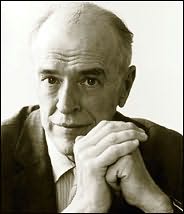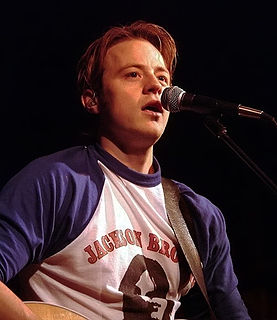A Quote by Sherman Alexie
I write less about alcohol, less and less and less. You 're an addict - so of course you write about the thing you love most. I loved alcohol the most, loved it more than anybody or anything. That's what I wrote about. And it certainly accounted for some great writing. But it accounted for two or three years of good writing - it would never account for 20 years of good writing. I would have turned into Charles Bukowski. He wrote 10,000 poems and 10 of them were great.
Related Quotes
I liked to write from the time I was about 12 or 13. I loved to read. And since I only spoke to my brother, I would write down my thoughts. And I think I wrote some of the worst poetry west of the Rockies. But by the time I was in my 20s, I found myself writing little essays and more poetry - writing at writing.
I don't even think any stimulants really help writing. You talk to most guys and they say, "Hey. I wrote this." And they're out of their head or they had a few beers or a bottle of whiskey. You wake up the next morning, it's usually pretty crap. But you know Dylan Thomas wrote some great poetry. Brendan Behan. You never know but ultimately I'd say you have to get up early in the morning and you're usually sober when you write your good stuff; it's hard work. So alcohol, keep it for chilling out, fun, and having a good time. Not for work.
[Kenneth Koch] taught children in public schools in New York City to write poems and told them down worry about rhyming, don't worry about any of that stuff. You know, write a poem where you mention three colors and make it five lines - or he would just give them, you know, little strategies. And, man, they wrote some great poems.
The bleak truth is that, under normal conditions, most of North America and Europe are buried under about 1.5km of ice. This bitterly frigid climate is interrupted occasionally by brief warm interglacials, typically lasting less than 10,000 years. The interglacial we have enjoyed throughout recorded human history, called the Holocene, began 11,000 years ago, so the ice is overdue, Chapman wrote. All those urging action to curb global warming need to take off the blinkers and give some thought to what we should do if we are facing global cooling instead.
The secret to writing is just to write. Write every day. Never stop writing. Write on every surface you see; write on people on the street. When the cops come to arrest you, write on the cops. Write on the police car. Write on the judge. I'm in jail forever now, and the prison cell walls are completely covered with my writing, and I keep writing on the writing I wrote. That's my method.
I've been writing music since I was about eight. I would write sporadically. I wrote a lot of music in high school. I guess the oldest song on the record ("I Thought I Saw Your Face") is about eight years old. It's the old "I had my whole life to write my first album and six months to write the second one." I did, to some degree, but actually, a lot of the songs that ended up on the record, I wrote really recently. So it varies.
I used to write songs that mimicked other songs that I would hear as a kid, cos I was 12 years old when I was writing those, right. And you hear a radio so all I'd write about was [sings] "hey girl, look at you", you know what I mean. I think that even doing that made it easier for me to write non-personal songs because, from a kid, I never wrote personal songs, they were always like mimicking. And now I'm just trying to understand my writing and where it's coming from.
There are fewer media writers in traditional settings. That is a beat that many legacy brands cannot afford. On the other hand technology writers are writing about media in ways they didn't before. As a consequence of the shift, there is less interest in many ways in the activities at some media. If you look at coverage of media as whole, the decision-making at the three broadcast networks and the cable channels, for instance, is much less of a focus than it once was. The guts of what goes on at Fox or CNN or MSNBC probably has less impact than it once did. It certainly gets less attention.
For me, writing music is a good way to say what's on my mind. It's less vulnerable in a way, less embarrassing, less exposing to the idea of seeing someone's reaction. The thing about it, though, is you need to be ready... especially if you've got something you're burning to say... even if it's just what some people might think is just a small moment that nobody'd ever bother with or notice.







































